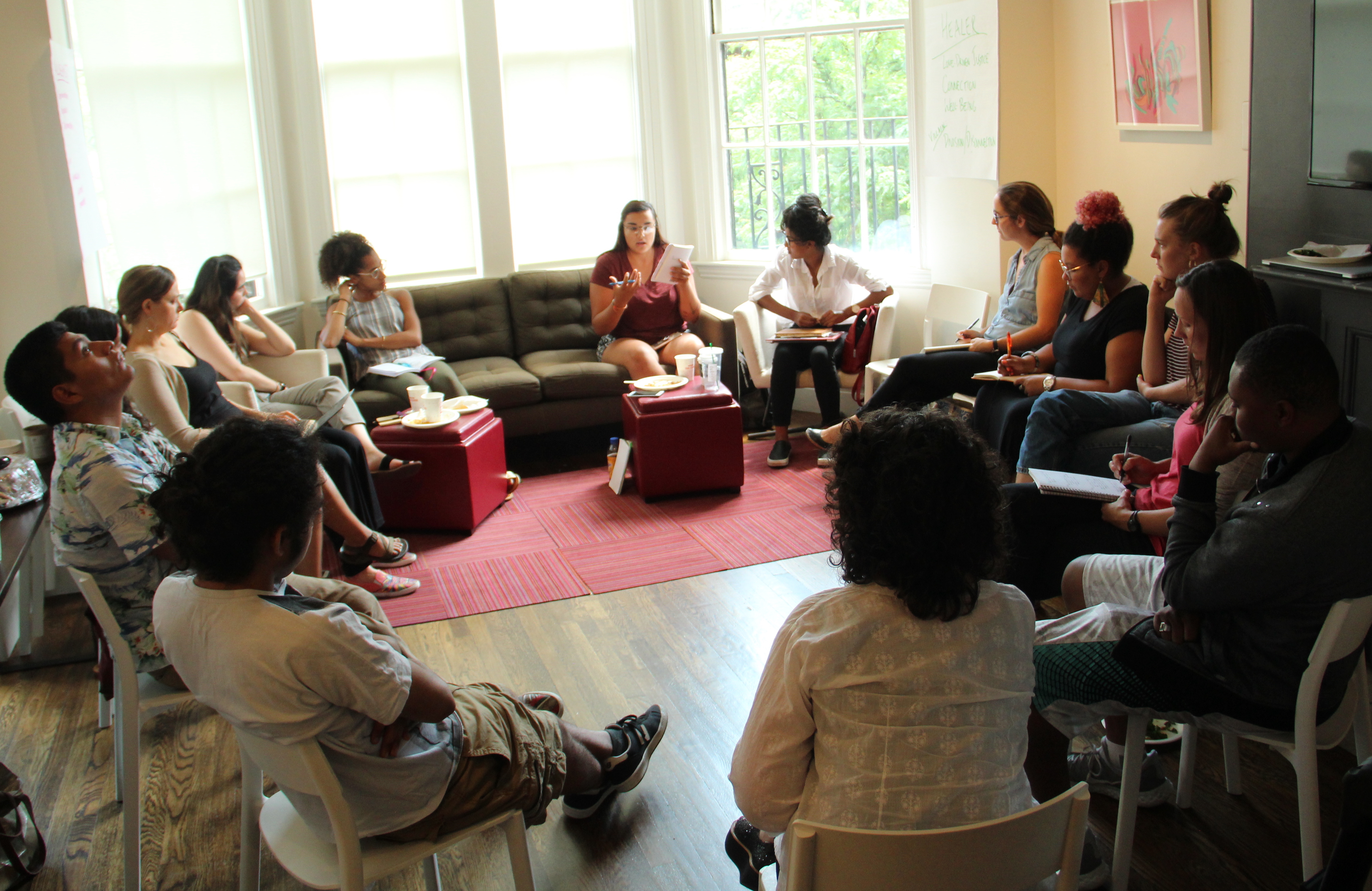New Dream Evolves: Young Leaders Question Consumption
by Amy Hartzler | August 15, 2018

New Dream is no stranger to change.
It's what we were founded on: the belief that individuals, institutions, and society can evolve based on new information. We are grounded in confidence that we can make positive change together.
Over the past few months, we have been engaging young leaders across North America to question consumption, and to share their vision of a new dream.
Through a youth lens, we are examining the laudable (if never-realized) dream that everyone longs for—where opportunity is fully available to all, and we can all thrive, regardless of wealth, education, gender, race, faith, physical ability, or any other dimension of difference.
The Boston Visioning Sessions
In July, New Dream gathered 10 Youth Fellows, ages 17-25, representing a diverse array of backgrounds and life experiences: racial, ethnic, urban, rural, indigenous, immigrant, foster care, graduate students, social entrepreneurs, and community activists. Chosen for their unique perspectives, Fellows joined partners, experts, funder representatives, and staff for focused sessions on the complex landscape of consumption and possibilities for future efforts.
A number of videos and articles were considered as "pre-work" (and more offered as post-work) to ground explorations in a shared understanding of "consumption"—from the deliberately addictive nature of social media and apps; to where our stuff comes from, who makes it, and where it goes when we throw it "away"; to the ways that advertising targets audiences differently based on class, race, age, and geography.
In the coming months, we’ll be creating and publishing a collection of recommended reading and viewing on these issues. If you’d like to suggest an article, book, or video to add to this upcoming primer, please email newdream@newdream.org.
During our time in Boston, some key insights emerged:
- While overconsumption is a hugely pressing problem, people living at the intersection of poverty and a high consumption culture often experience want for basic needs and too little choice in what they do consume. What they consume and where they live are often unhealthy or downright toxic, the result of targeted marketing efforts and environmental injustice.
- Addressing over-consumption at the individual and systems levels is critical. Focusing solely on shifts in individual behavior will never overcome the ways that legislation, manufacturing, distribution, and advertising exploit people and nature and create environments incapable of fostering well-being.
- Over-consumption and materialism are features—not bugs—of our dominant economic system, driving the need to manufacture and acquire more stuff to create economic activity.
- Marginalized communities are disproportionately impacted by over-consumption, and they are disproportionately targeted by industries like alcohol, tobacco, fast food, and other products that negatively impact health.
- Regardless of our wealth, race, location, political affiliations, or education, we are all burdened and oppressed by over-consumption and materialism.
- There was consensus on equity / justice / liberation as part of a future vision.
- The role of technology in consumption (broadly defined) is complex. In some cases, technology is a lifeline to meet basic needs and ensure access to education, in particular for those with limited mobility. We also know that social media and other platforms are addictive and can interfere with optimal development in children.
- A shift in consciousness is required to help us see the ways in which we are all connected, and how our consumption impacts ourselves and others.

Moving Forward
New Dream's goals remain the same: to shift norms and behaviors around consumption to create greater well-being for people and the planet. Here’s what this looks like in action over the coming months:
- Youth Fellows and the New Dream team are working together to evaluate active campaigns and resources and to create new content that can engage young people and the current New Dream community to question consumption.
- We will be sharing new perspectives and ways to step toward a new dream (and an evolved New Dream) that works for all of us, in our newsletter, social media, and updated content and programming.
- New Dream staff and key advisers, including youth representation, will gather in September to refresh our theory of change and produce an updated strategic plan building on the insights that emerged from our Youth Fellows, Advisory Council, and partners who are leading efforts on different aspects of over-consumption.
We will map out programming for 2019-2020 based on the strategic planning process centering youth voices and leadership.
This work is emergent, and unfolding differently than a traditional strategic planning process. We remain deeply grateful for the support of our community, Youth Fellows, Advisory Council and past board members, longtime donors, and new funders who applaud and see the need for this reflection and course of action. Our goal is to ensure that New Dream can fully and equitably execute on our mission of well-being for all.
Have feedback or comments for us? Please get in touch via email at newdream@newdream.org.
Amy Hartzler is Strategic Partnerships Adviser for New Dream. In this role, she facilitates the strategic planning for the organization’s new focus to center young leaders in this evolution of New Dream.

